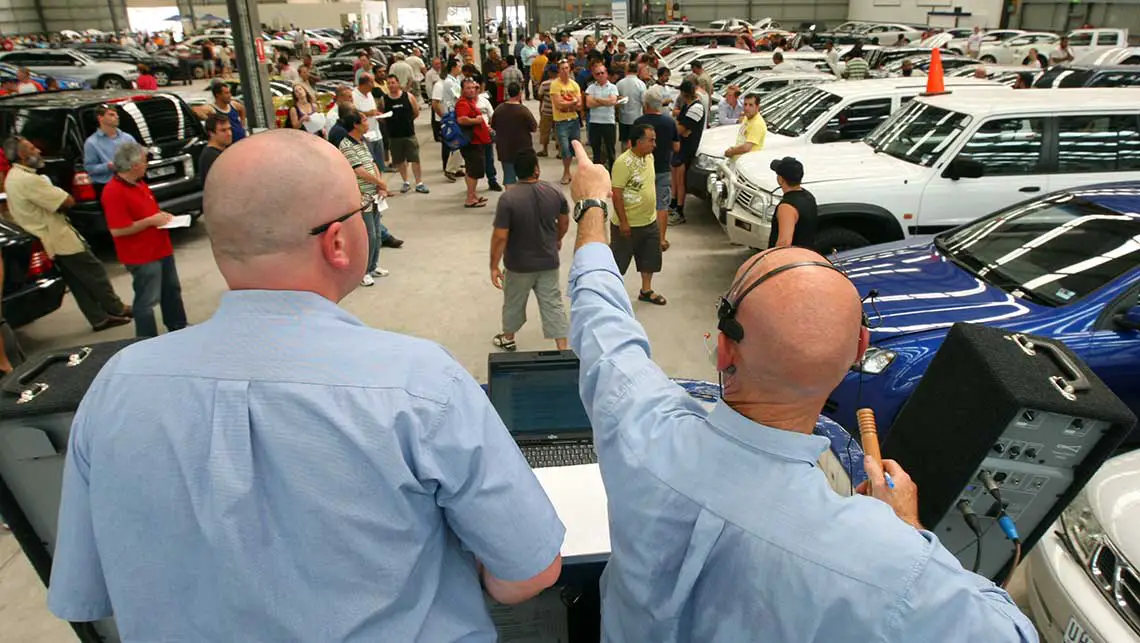You were in a bidding war for an auction car and won! Congratulations, now it’s time to pay the auction house for the vehicle. In addition to the winning bid, you will find that there are more fees attached to the vehicle that are due at the end of the auction. You should know about the costs attached to auction cars before you bid.
Here you’ll find a list of the extra fees and how they break down.
Auction Fees
Auction fees refer to the charges that the auction house imposes for participating in their auction and purchasing a vehicle. These additional fees can be broken down as follows:
- Registration Fee – You may need to pay a registration fee before you can even bid. This fee covers the administration costs and access to the auction.
- Bidder Fee – The auction house may charge you a bidder’s fee. This could be in place of a registration fee, but it serves the same purpose of covering expenses and services to buyers.
- Buyer’s Premium – This is the fee you pay for being the winning bidder. Each auction house will charge a final value fee on the sale. You will find the percentage they will charge on their website, and it will also give you information on any other expenses there may be.
It’s important to carefully review the auction house’s terms and conditions to understand the specific fees that will apply. These fees can significantly impact the total cost of purchasing a car at auction, so it’s essential to factor them into your budget when determining how much you’re willing to bid.
Additionally, all auction sites have their own unique fees, so consider these fees when looking for the best auction to place your bids.
Inspection Fees
Inspection fees refer to the costs associated with having a professional mechanic or inspector assess the condition of a vehicle before purchasing it at an auction. These fees are separate from the auction fees and are incurred by the buyer as an optional expense.
Before bidding on a vehicle, you should inspect the car to see if there are any hidden issues or other problems. If you don’t have your own mechanic, the auction house can give you a list of third-party sources that do inspections.
All inspections provide information that is important when considering your bids. The inspector can tell you if any mechanical issues may cost you money in the future, and whether current repairs are needed. Typically, the inspection will cover the engine, transmission, brakes, suspension, electrical systems, and the frame’s condition.
While the inspection fee is not mandatory like the auction fees, it helps to have a professional look at the vehicle before you make a decision.
Transportation Costs
Transportation costs refer to the expenses associated with moving a vehicle from the auction location to your home or dealership lot. When purchasing a car at an auction, you will need to arrange for the transportation of the vehicle afterward.
Transportation costs can vary depending on various factors, including the distance between the auction site and your destination, the chosen transportation method, and any additional services required. Here are some of the standard transportation options:
- Flatbed Trucking – This involves transporting the vehicle on a flatbed truck. The cost is typically calculated based on the distance traveled, vehicle size, and any additional services such as enclosed transport or expedited delivery.
- Towing – If the auction is within a reasonable distance, you may choose to have the vehicle towed to your location. Towing fees can vary depending on the tow truck type required and the miles.
- Professional Driver – Another option is hiring an experienced driver to transport the vehicle to your destination. The cost will depend on the distance, the duration of the trip, and any accommodations required for the driver.
Be sure to know your transportation needs and any additional insurance costs before you start bidding.
Sales Tax
Depending on your location, you may be required to pay sales tax on the car’s purchase price. Check your local tax laws to determine the amount you must pay.
Vehicle History Reports
Obtaining a vehicle history report is crucial for understanding the car’s background, including any accidents, title issues, or previous damage. These reports usually come with a fee, but they provide valuable information to help you make an informed decision, so it’s best to order a report. If you’re buying more than one car, you can save money by purchasing bulk reports.
Repairs and Maintenance
Remember to budget for any necessary repairs or maintenance that the car may need after purchase. Auction vehicles are typically sold as-is, without any warranties, so it’s essential to factor in potential expenses for fixing any issues. If you are unfamiliar with repair costs, it’s a good idea to bring a trusted mechanic to help you determine whether the vehicle is a good deal for you.
Before you even start to bid, take the time to set a budget that includes these fees, as well as how much money you want to spend on a vehicle. Setting a budget and sticking with it gives you a better chance of getting a good deal on a car. If the price gets too high then wait for the next car; there’s always another great vehicle on the block.


